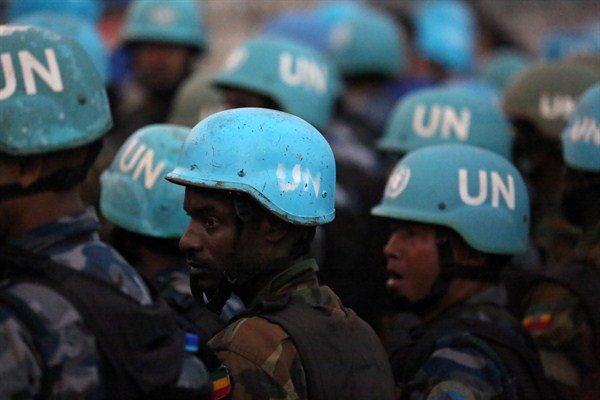The United Nations is constantly embroiled in brutal conflicts, but some do it vastly more political harm than others. The organization has never fully recovered from its failure to prevent the Rwandan genocide and Srebrenica massacre in the 1990s. Now it faces simultaneous crises in South Sudan and Syria that may do it equally severe damage.
In South Sudan, peacekeepers have been thrown off balance by an outburst of violence for the second time in three years. The U.N. mission (UNMISS) there was unable to stop the country collapsing into civil war in 2013, but managed to protect tens of thousands of endangered civilians on its bases. At one point, it sheltered over 200,000 from the surrounding violence. Yet UNMISS seemed glaringly unprepared once when tensions between South Sudan’s leaders exploded into fighting at the start of July.
The scale of the U.N’s latest failure is only now becoming clear. There are multiple reports of peacekeepers refusing to protect civilians. In one incident, up to 30 Chinese and Nepali soldiers looked on while South Sudanese troops raped women in front of their base. International aid agencies claimed last week that “the inability of UNMISS to protect civilians” undermines their credibility when it comes to assisting the vulnerable.

